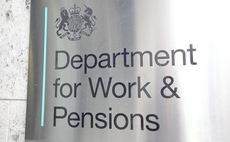Less than half are concerned that their use of unapproved software could lead to data loss
More than 80 per cent of employees admit to using non-approved software-as-a-service (SaaS) applications in their jobs, a new survey has found. The survey was carried out by Stratecast, a branch...
To continue reading this article...
Join Computing
- Unlimited access to real-time news, analysis and opinion from the technology industry
- Receive important and breaking news in our daily newsletter
- Be the first to hear about our events and awards programmes
- Join live member only interviews with IT leaders at the ‘IT Lounge’; your chance to ask your burning tech questions and have them answered
- Access to the Computing Delta hub providing market intelligence and research
- Receive our members-only newsletter with exclusive opinion pieces from senior IT Leaders























